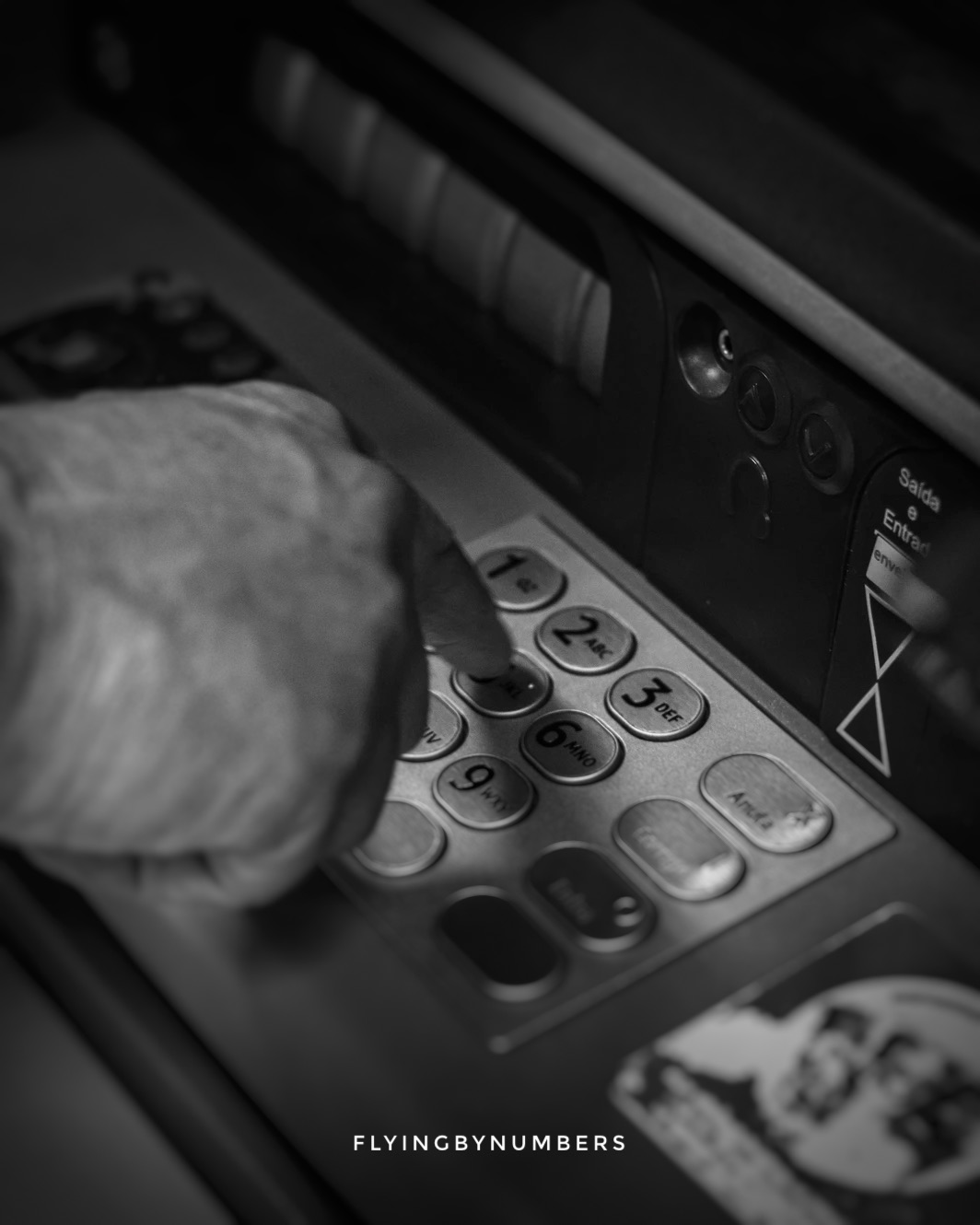Looking this good isn’t cheap! Working as a flight attendant can be an expensive job. It’s certainly a great way of travelling the world and staying in lovely hotels, but a busy flight attendant lifestyle can easily leave you broke at the end of the month if you don’t know what you’re doing.
Between the cost of living in a city near an international airport, or the expensive commuting costs, and the on-the-go lifestyle, it’s easy to see how your bank balance can quickly dwindle. There is also the temptation to spend your hard-earned money on nice things in far-flung places — making the memories that make the job worthwhile!
However, there are ways to save money – you just need to know where to look.
In this blog post, we will share seven top money saving tips from longstanding cabin crew, on how to save money as a flight attendant.
Tip #01: Local currency
One of the best ways to save money as a flight attendant is to spend in local currency. Wherever you are.
When you’re abroad, by cash machines or credit cards, you’ll often be offered the chance to pay in your home currency or the local currency. Always choose the local currency – you’ll get a better exchange rate this way.

On the subject of currency, while some airlines offer crew the ability to get cash allowances for their trips — either in the hotels themselves or beforehand at travel exchanges — it’s not always the best way of paying.
Another great way to save money as a flight attendant is to use modern banking apps like Revolut, or Monzo. These apps allow you to transfer money between currencies at very low rates — frequently even better than airline staff rates — so you can save yourself a lot of money on transfers. It might not seem like much, but a few percentage points different when spending money down route every month quickly adds up.
Tip #02: Embrace the weekday lifestyle
One downside to working as cabin crew is the time away from home, and the shift work. Birthdays, special events, and most of all weekends can be hard to get off.
Many flight attendants spend their whole life fighting the system — trying (and failing) to get most of the weekends off, and then making the most of their one free weekend! But from a budget perspective, one of the best things you can do is embrace the weekday lifestyle.
Half price haircuts, cinemas, cheap spa days, and dinners out — there are a giant variety of deals only available Monday – Thursday. When you’re not working, set out to pack things into weekdays. You’ll avoid the crowds and help avoid paying expensive weekend rates.
Top Tip: Do your research on weekday deals. The more you look into it, the more you’ll be surprised! Did you know it’s even cheaper to fill up your car on a weekday?!
Tip #03: Avoid costly room service.
I know, I know, at the end of a long flight sometimes you all you want to do is crawl up in bed and order room service. But there can be costly tray charges, and even with negotiated airline discount, it’s still a pricy experience.
When you can’t face leaving the hotel, in an ideal world you can attempt to prepare meals in your room. I’ve seen many crewlife hacks — from cooking toasted sandwiches on ironing boards, to boiling eggs in the kettle — but it doesn’t have to be this complicated!
Low cost eating in:

Tip #04: Bid to fly to destinations with good allowances.
One way to maximise your savings is by bidding for flights to destinations that have good allowances. If you’re not currently a flight attendant — or you’re quite new — you might not know how allowances work. But, you could be missing out on saving hundreds a month.
All airlines normally use two types of allowances: Per diem and destination based.
- Some airlines give cabin crew a payment based on the trip destination, AKA 2 nights Australia £300/$450.
- Others use a time away from base system, e.g., all domestic trips $2.00 per hour away, all international trips $3.00 p/hour.
- Most airlines pay their flight attendants using a combination of the two. As an example, £50/$75 per night away, plus £2/$3 an hour.
Because different destinations have different allowances allocated to them, and international and domestic rates usually vary too, there can be a giant discrepancy in the amount of money cabin crew get paid for working the same number of days.
Top Tip: As a general rule, international flying is more lucrative than domestic flying.
Put simply, many destination allowances are wrong. The government overseas rates system destination allowances are based upon is infrequently updated, and often based upon a cost of living in the city that is entirely different to what short-term business travellers experience.
As a result, some destinations might have an allowance of $10 per night, and in reality you will not be able to buy dinner anywhere for less than $25. Others will have 150 dollars allocated because it’s classed as an expensive city, but for $8.00 you can eat like a king or queen!
Typically, when we start work as a flight attendant, we search for the destinations we really want to visit, and forget about what forms the rest of our roster. Bid smart. Work out what destinations are more lucrative, it could save a huge amount of money.
Tip #05: Just ONE glass of wine
On layovers, we drink together to socialize, and we drink alone to deal with stress, boredom and loneliness. We drink to help ourselves sleep when work disrupts our body clocks, and we drink when we run into long lost friends on our travels. While social drinking is the norm in society as a whole, it is amplified in the airline industry, with binge drinking happening with regularity.
Booze Crews: The Airline Industry’s Drinking Problem
One of the best ways to save money as a flight attendant is to drink less! This may sound like common sense, but when you’re downroute, it can be easy to get caught up in the festivities and have one too many drinks.
It’s easier said than done, and there is definitely a culture of relaxing after a long flight with a glass of wine. We bond with our crew mates, vent, relax, and relieve the pressures of constant travelling and missing home life.
I’d argue this social aspect is vitally important. But the alcohol part is less so. It’s also expensive! Not only will drinking less help you save money, but it’s good for your health, and will help you sleep better.
So next time you’re in a far-flung corner of the world, meeting “just for a quick nightcap”, set out to limit yourself to just one or two drinks. You’ll thank yourself later.

Tip #06: Stick to a budget. (Loosely!)
Arguably, the best way to save money as a flight attendant is by sticking to a budget.
It sounds easy. Budgeting means setting aside a certain amount of money each month for things like food, entertainment, and travel, right? But, can be difficult with a schedule that’s changing, variable earnings, and unexpected costs — and yes, you should go skydiving on that layover by the way!
Many flight attendants I’ve worked with use the hectic rostering and changing monthly pay as reasons that budgeting won’t work and is too hard. However, the variable nature of this job is even more of a reason to stick to a budget. With constant timezone changes and continually looking to the future — what great trips are coming up next month, what are you bidding for the month after — It’s easy to kid yourself that next month you’ll save more.
It can be done. Budgeting as a flight attendant just needs to be structured differently.
Tip #07: Take full advantage of crew discounts
Every airline is different, but every airline I’ve ever worked for has had two things in common:
- A range of staff discounts available to cabin crew
- Lots of flight attendants unaware of these discounts!
At home base, there are the more obvious discounts:

- Travel is obviously where the main discounts lie, but there are a surprisingly large amount of cabin crew who could be saving, who don’t know about websites like Staff Travel Voyage, Touchdown and IdTraveller.
- Whenever you’re considering making the most of the discounted flights, ensure you get a good deal on hotels and activities too.
Virtually all airlines will also have a specific corporate rate with most major hotel chains. This may be better than the staff travel sites above can offer, so it’s worth checking an airline specific rate. This rate is likely hidden away somewhere in the company admin pages, and you’ll have to ask where to find it!
When you’re away, remember that major car hire chains also offer significant staff travel discount to airline industry employees. Discounted hire cars can work out much cheaper than getting a cab, or even public transport.
Summary
We hope you found these ways to save money as a flight attendant useful. A career as cabin crew can be hugely rewarding, making lifelong friends and travelling the globe. It can also be a strain on your finances!
Hopefully, these 7 tips can help you make the most out of your career, whilst also saving a bit of money on the side.





